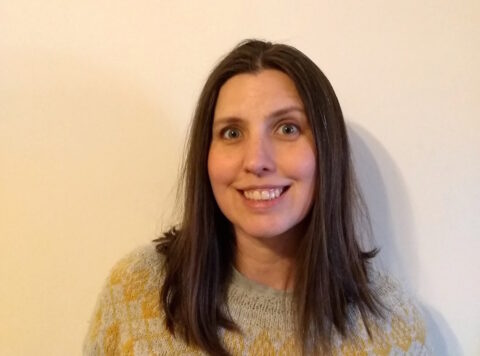“Hurt Me” takes on the subject of the aftermath of a shared traumatic sexual experience. I completely admire your ability to tackle the concept of processing intolerable pain and the different ways people manage to do so. Did you actively consider how to thoughtfully handle this subject matter when drafting the story?
Understanding how humans process trauma feels key to me—not just in crafting a compelling story, but in our ability to connect and share space with others. For better or worse, trauma and our response to it builds us. That’s partly what I wanted to explore in “Hurt Me” and I knew I had to approach it with care. Sexual assault is such a heavy topic, admittedly one I keep grappling with in my stories because it continues to affect/devastate all ages and genders worldwide. I think it’s common to imagine that both girls in this story would respond similarly to the same assault, but even siblings growing up in the same household have different take-away experiences, different lenses in which they view the world; I have eight siblings, so the individual vs collective lens is something I find truly fascinating.
Within this very difficult scenario, you allow the reader to fill in the details using only a few, telling words. I’m haunted by the description “stripped, like trees in winter.” Tell us a little about your narrative choices in conveying the narrator’s emotional state without giving us the entire backstory.
I think there’s a delicate line to walk when writing about sexual assault (or even sex) where it can tend toward voyeurism, and sadly, telling it factually makes it sound less believable. It’s odd, isn’t it, how clarity takes the impact away, whereas details such as the stripped trees let us sense the vulnerability and exposure, the chill and aloneness. Maybe it says something about the world we live in that it’s easier to connect with a metaphor, or maybe metaphor helps bring understanding to those lucky enough to have never experienced sexual assault? Whatever it is, coupled with the porn at the party, the reader is smart enough to put the pieces together. Making the reader slow down on an emotional image and consider it creates a moment, I think, one I hope the reader has a hard time shaking.
Repetition plays such a huge role in the piece. Reading your story out loud, the repeated phrases drummed in the emotional impact of the narrator’s and Wendy’s experience. Did this repetition come out naturally when drafting the piece? Did you find yourself tempted to add or subtract?
This story taught me a tremendous amount about revision and layering, as the earliest version was more anecdotal regarding what porn teaches kids about sex along with an awkward memory of viewing porn at a university party. The repetition arrived through expansion on the third draft after I realized why these girls were watching it and what had happened to them. At that point the porn faded into the background, almost as a soundtrack to the story, and the repetition arose naturally. There’s something about the rhythm of bodies jamming together that felt inescapable and necessary for this piece, perhaps one of the few honest links between the reality of sexual assault and sex as performance.
The details do so much work in the story. I’m drawn to the idea that there’s this bowl of colorful condoms out on the table at Wendy’s house and it made my brain spin—did Wendy’s parents put them there? Did Wendy? Can you tell us more about Wendy’s household—things that didn’t make it into the story?
Oh, the condoms! They are such a bright spot, aren’t they? And playful, like a bowl of candy—a representation of everything sex hasn’t been in the lives of these girls and many others. But there’s a sense of hopefulness there too, a ruse of protection, a nod to childhood, of Neverland and “Wendy houses.” I really feel for the Wendys of the world and this character who has grown up too soon, courting disaster in trying to understand what happened to her, trying to elevate the gravity of her experience with pretense and rainbow colors. In my mind, the condoms, the Kool-Aid, the party and porn—those were all Wendy’s machinations. It’s part of how she’s processing, an attempt to arm herself with information. It was a conscious choice not to include anything about Wendy’s parents in this piece. I don’t think they know what happened to her. If Wendy can’t admit it to herself, then she’s definitely not told her parents. But then again, most teenagers don’t.
There’s so much complexity here—can two people have a totally different perception of a traumatic event? And how alone does that make someone feel? Couple that with religion and porn and crusty-zitted giggling boys and our narrator has an unbelievable burden to shoulder. The ending for me was the perfect blend of surprising and yet inevitable. Did you know from the beginning that it would end with a connection between the two girls?
There’s so much baggage, right? Sexual assault on the whole is awful, but the baggage that surrounds it—cultural, religious, familial—even peer groups compound the experience. It’s a lot to shoulder for any human, and conveying the depth and breadth of that violation was something that I really strived to capture. Worst of all for the narrator is that Wendy is in denial, and that denial prevents both girls from healing and having meaningful connections. What a balm that would be for this narrator, to have her experience acknowledged, witnessed. But Wendy’s not ready; the cost for her is too high. I wanted Wendy to drop her guard for a minute. It seemed too unrealistic for her to move further; she’s so entrenched in her version of the truth, the most honest conclusion was just a flash of humanity. Sometimes, especially in real life, that’s the best we can hope for.



 The core workshop of SmokeLong Fitness is all in writing, so you can take part from anywhere at anytime. We are excited about creating a supportive, consistent and structured environment for flash writers to work on their craft in a community. We are thrilled and proud to say that our workshop participants have won, placed, or been listed in every major flash competition. Community works.
The core workshop of SmokeLong Fitness is all in writing, so you can take part from anywhere at anytime. We are excited about creating a supportive, consistent and structured environment for flash writers to work on their craft in a community. We are thrilled and proud to say that our workshop participants have won, placed, or been listed in every major flash competition. Community works.